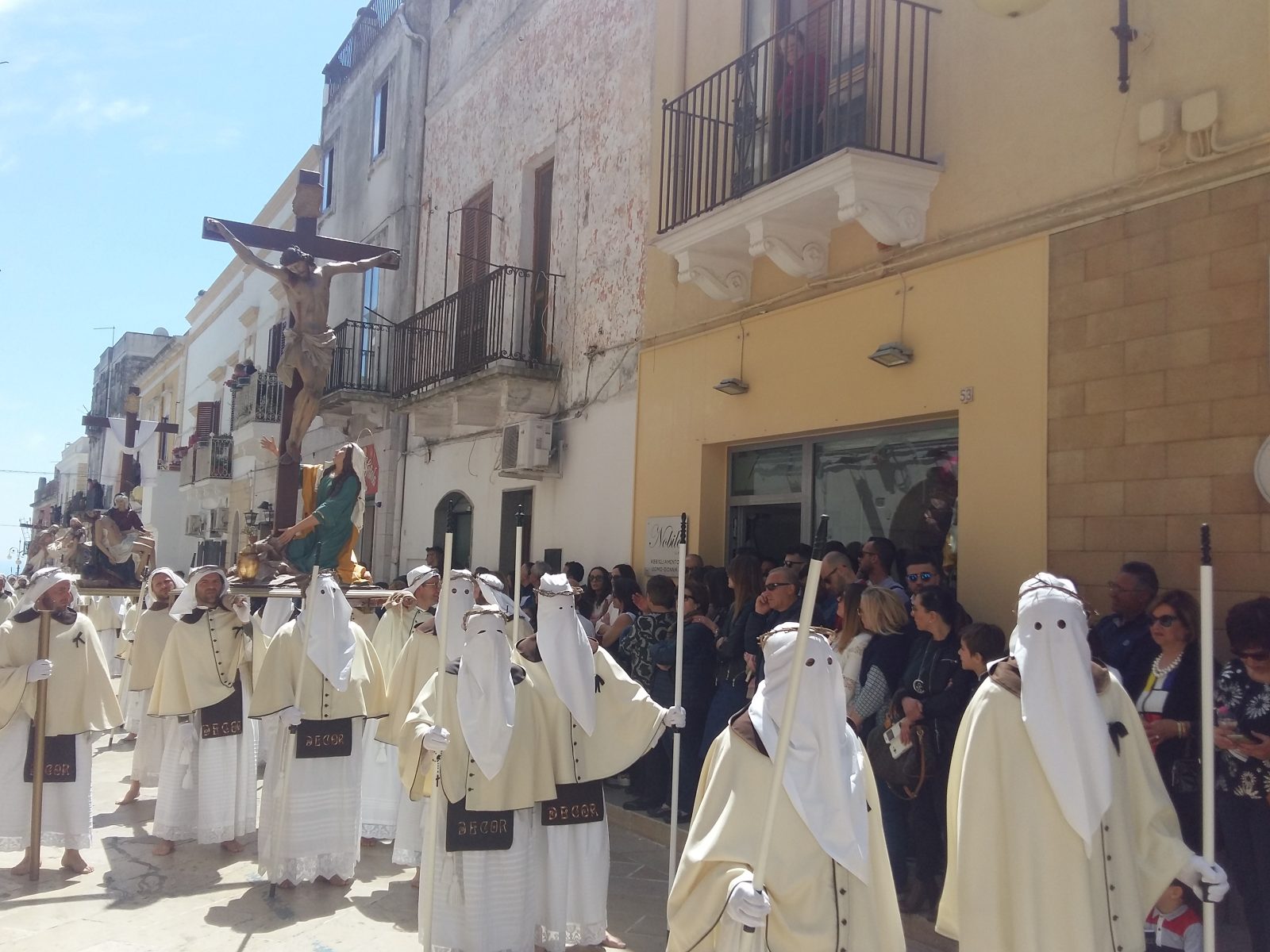The Holy Week is deeply felt and lived in the land of ravines.
On Holy Thursday the “paranze”, after the mass in coena domini, walk in pairs and, preceded by a brethren holding the “trich trach” (the so-called troccolante), they wander in the various churches where they stop to pray until the arrival of other brethren and the changing of the guard. Once arrived in the church, the troccolante in a dark suite annunces the arrival of the paranze who, after the sound of the troccola, explodes on the ground three thumps for recognition with the stick so-called u’perdone, they bow in a sign of greeting and make the exchange. At midnight from the Mother Church the procession of the Addolorata moves, going towards the church of the Rosary, completes the ceremony closing the Repositories. In the meantime, the couple of the older brethren, so-called serrachijse, those who close the Churches, leave the headquarter of the Confraternity for their tour and collect all the paranze, who return in their own headquarter to secretly receive the washing of the feet from the prior. behind closed doors.
The Holy Friday is dedicated to the Procession of Mysteries. The first procession leaves the Mother Church and it’s organized by the Inter-Brother Committee for Rites of the Holy Week which brings together the three Confraternities of the Immaculate Blessed Virgin Mary, of the Most Holy Sacrament and Rosary, and of St. Antony of Padua.
At the dawn of Holy Saturday, the second procession starts from the Church of the Carmine. Many Brothers and Sisters of the Carmine take part in it all strictly barefoot except for the women who accompany the simulacrum of the “Dead Christ” and our Lady of Sorrows. The troccolante opens the rite followed by “lu’ fischett”, a quartet of bandsmen who open the whole processional group of brethren in a very sad way. The procession then sees the presence of twelve Mysteries (statues representing Passion and Death of Jesus) carried on the shoulders of the brethren, among whom the paranze pairs are placed.
Hooded and barefoot women carry metallic spears in their hands and some symbols of the Passion of Christ as well as three crosses. Then follow the bands that with their marches accompany the whole rite and the “Coffin of the Dead Christ”. The statue of Our Lady of Sorrows closes this extraordinary spiritual parade. “Bara del Cristo Morto”. Chiude questa straordinaria parata spirituale la statua dell’Addolorata.

